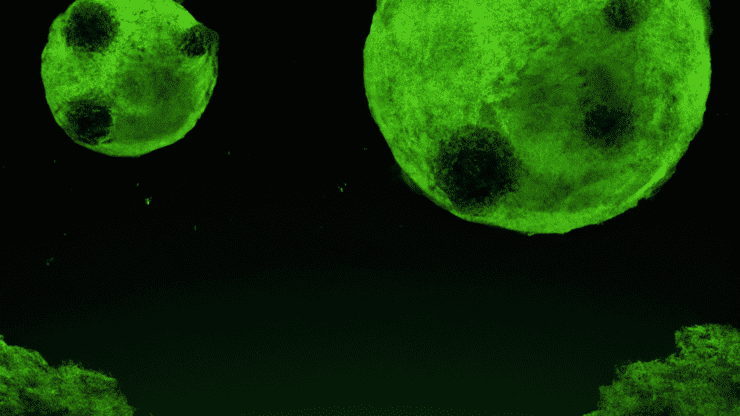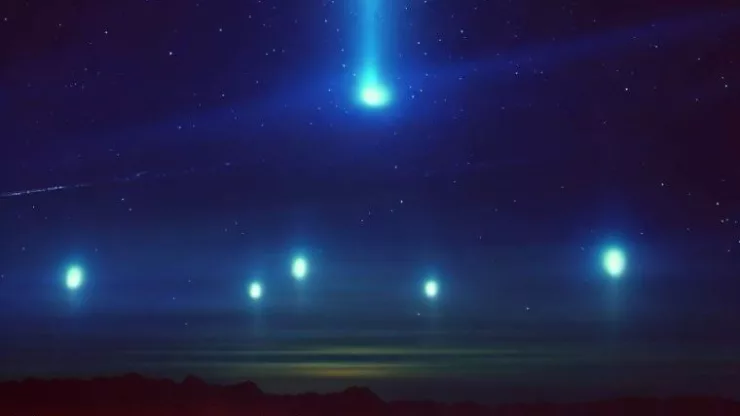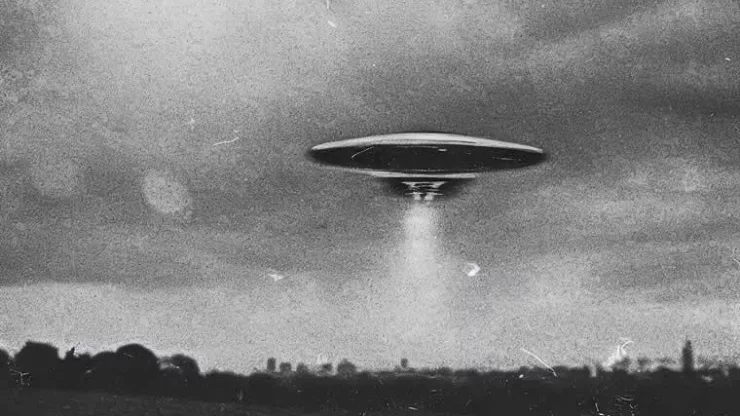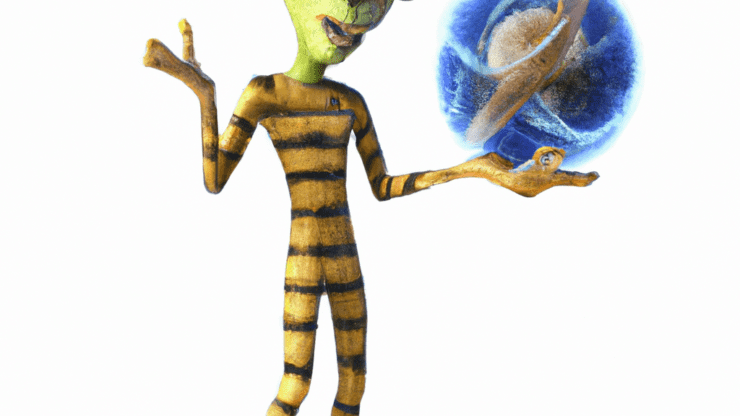The existence of extraterrestrial life has been a topic of fascination for humans for centuries. While some remain skeptical, others believe there is compelling evidence to support the existence of aliens.
Astronaut encounters with aliens are some of the most intriguing pieces of evidence that suggest we may not be alone in the universe.
In this article, we delve into the accounts of astronauts who claim to have encountered aliens and explore the scientific evidence that supports the existence of extraterrestrial life.
Jump to Section
Brief history of astronaut encounters with aliens
The first astronaut encounter with aliens was reported in 1961 by Major Robert White during the X-15 Flight 3.
However, it was not until the Apollo missions that astronaut encounters with aliens gained widespread attention.
Over the years, several astronauts have come forward with stories of encounters with extraterrestrial life.
These accounts have been met with skepticism and criticisms, but they have also sparked a renewed interest in the search for alien life.
Theories on the existence of aliens
The possibility of extraterrestrial life is not a new concept. Scientists have been searching for evidence of life beyond our planet for decades, and several theories have been proposed to support the existence of aliens.
One such theory is the Drake Equation, which estimates the number of intelligent civilizations in our galaxy.
Another theory is the Rare Earth Hypothesis, which suggests that Earth is a unique planet that supports the development of complex life.
Scientific evidence supporting the existence of aliens
While there is no concrete evidence of the existence of aliens, several scientific discoveries suggest that life beyond Earth is possible.
For instance, the discovery of microbial life on Mars and the existence of extremophiles on Earth suggest that life can thrive in extreme environments.
Additionally, the recent discovery of thousands of exoplanets in our galaxy has increased the possibility of finding extraterrestrial life.
The Fermi Paradox: why haven’t we found evidence of aliens yet?
The Fermi Paradox is a philosophical question that asks why, if the universe is teeming with intelligent life, we have not yet found evidence of it.
Some theories suggest that alien life may be too far away or too advanced to communicate with us.
Others suggest that aliens may have already visited us, but we simply do not recognize their technology or existence.
Astronaut encounters with aliens
Several astronauts have reported encounters with extraterrestrial life. While these accounts have been met with skepticism and criticism, they remain some of the most compelling pieces of evidence for the existence of aliens.
Account of Neil Armstrong and Edwin "Buzz" Aldrin’s encounter during Apollo 11 mission
During the Apollo 11 mission, Neil Armstrong and Buzz Aldrin reported seeing an object that appeared to be following their spacecraft. Armstrong reportedly said, "It was L-shaped.
We couldn’t have used aerodynamic controls to fly what we witnessed." The two astronauts reported the incident to NASA, but no official explanation was given.
Account of Gordon Cooper’s encounter during Mercury-Atlas 9 mission
Gordon Cooper reported seeing a glowing green object during the Mercury-Atlas 9 mission. He described the object as "moving fast" and "changing direction" before disappearing from view.
Cooper’s account was supported by radar recordings, but NASA officials dismissed the incident as a malfunction of the equipment.
Account of Edgar Mitchell’s encounter during Apollo 14 mission
Edgar Mitchell, the sixth man to walk on the moon, claimed to have encountered extraterrestrial life during the Apollo 14 mission. He reported seeing "flitting" objects that he believed were spacecraft.
Mitchell’s account has been met with skepticism and criticism, but he remained convinced of the existence of aliens until his death in 2016.
Criticisms and skepticism
While the accounts of astronaut encounters with aliens are compelling, they have also been met with skepticism and criticisms. Some argue that the accounts are simply a result of hallucinations or misinterpretations of natural phenomena.
Others suggest that the astronauts may have been influenced by popular culture or their own beliefs.
Criticisms of astronaut testimonies
One of the main criticisms of astronaut testimonies is that they are often anecdotal and lack concrete evidence. Skeptics argue that the accounts are simply stories and do not provide any tangible evidence of alien life.
Skepticism towards the existence of aliens
Despite the accounts of astronaut encounters with aliens and the scientific evidence supporting the existence of extraterrestrial life, many remain skeptical.
Some argue that the conditions required for life are too rare to be found elsewhere in the universe.
Others suggest that the lack of concrete evidence suggests that alien life may not exist at all.
Extraterrestrial life beyond encounters with astronauts
While astronaut encounters with aliens are some of the most compelling pieces of evidence for the existence of extraterrestrial life, there are other ways we can search for alien life.
Discoveries of microbial life on Mars
In recent years, scientists have discovered evidence of microbial life on Mars. While these discoveries are still subject to scrutiny, they suggest that life beyond Earth may be simpler than we thought.
The search for intelligent life through SETI
The Search for Extraterrestrial Intelligence (SETI) is a scientific effort to detect intelligent life beyond our planet. SETI researchers use radio telescopes to search for signals from other civilizations.
While no concrete evidence of intelligent life has been found, the search continues.
Implications of the existence of aliens
The existence of extraterrestrial life would have far-reaching implications for humanity. It would challenge our understanding of the universe and our place in it.
It would also raise questions about the nature of life and the possibility of intelligent civilizations beyond our own.
Summary of astronaut encounters with aliens
While the accounts of astronaut encounters with aliens remain controversial, they have sparked a renewed interest in the search for extraterrestrial life.
The scientific evidence supporting the existence of aliens, combined with the accounts of astronauts, suggests that we may not be alone in the universe.
Implications of the existence of aliens
The existence of extraterrestrial life would challenge our understanding of the universe and our place in it. It would also have far-reaching implications for science, philosophy, and religion.
Some suggest that the discovery of alien life may even have practical applications, such as new technologies and advancements in space exploration.
FAQ
What is the Fermi Paradox?
The Fermi Paradox is a philosophical question that asks why, if the universe is teeming with intelligent life, we have not yet found evidence of it.
What is SETI?
The Search for Extraterrestrial Intelligence (SETI) is a scientific effort to detect intelligent life beyond our planet.
What are some criticisms of astronaut testimonies?
One of the main criticisms of astronaut testimonies is that they lack concrete evidence and are often anecdotal.
What are some theories on the existence of aliens?
The Drake Equation estimates the number of intelligent civilizations in our galaxy, while the Rare Earth Hypothesis suggests that Earth is a unique planet that supports the development of complex life.
What are some implications of the existence of aliens?
The existence of extraterrestrial life would challenge our understanding of the universe and may have practical applications in technology and space exploration.
Greetings fellow space travelers, I am Draco Blaze, creator of Alienated Media who is passionate about exploring the unknown and writing about my experiences with extraterrestrial life.
My focus is on alien encounters and creating thought-provoking sci-fi short stories that transport readers to new worlds and realities.
Feel free to contact me at [email protected].





